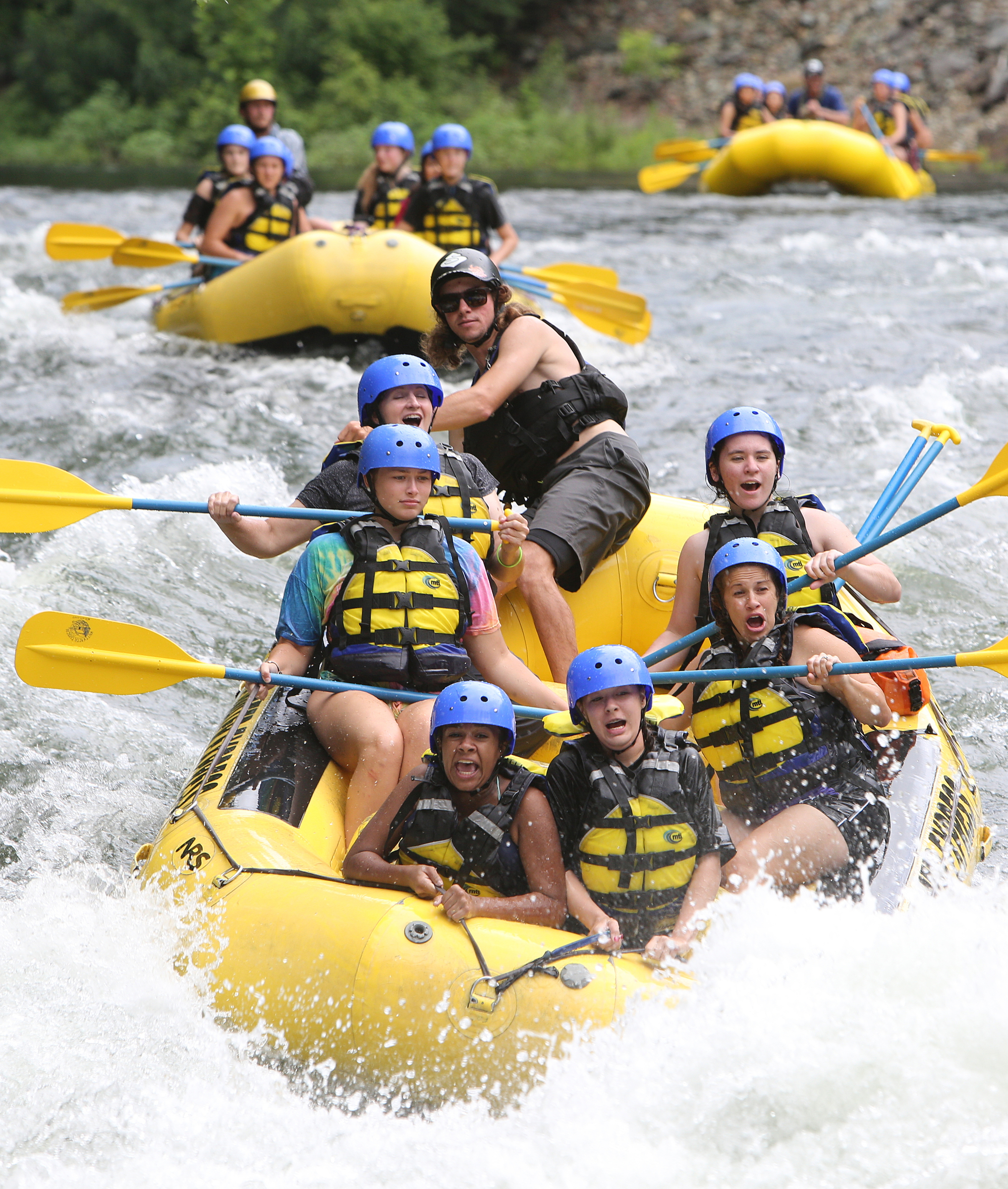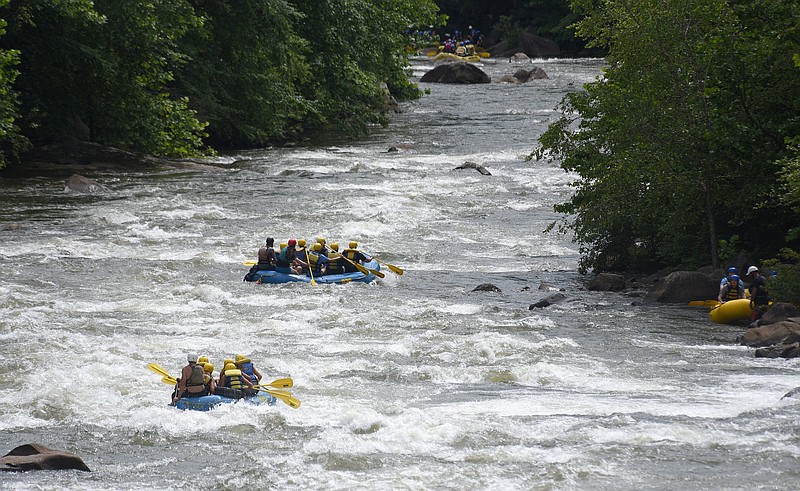Two lawmakers from Southeast Tennessee have floated bills in their respective chambers seeking to negotiate with the Tennessee Valley Authority for more water release days on the famed Ocoee River and designate Polk County's sparkling whitewater mecca an "Olympic river."
In January, Rep. Dan Howell, R-Ocoee, and Sen. Adam Lowe, R-Calhoun, introduced bills seeking to boost rafting and tourism on the Ocoee River by adding more days of rafting. Neither Howell, who represents Meigs, Polk and part of Bradley counties, nor Lowe, who represents Bradley, McMinn, Meigs and Rhea counties, responded to messages left at their offices in Nashville, on their cellphones or through email inquiries. State offices were closed Good Friday.
The House bill sponsored by Howell — who chairs the Ocoee River Recreation and Economic Development Fund Board — and by Lowe in the Senate, will allow the board to work with the deputy commissioner of state parks to negotiate with TVA for additional water release days during the rafting season, according to a statement issued by Howell. The expansion could draw more tourists and rafting enthusiasts to the area.
"The Ocoee River is a magnificent natural resource that boasts some of the best whitewater rafting in the world," Howell said in the statement. "This bill will allow for additional water releases for Tennesseans and tourists to enjoy being on the water, drawing more people to the region and further boosting our economy. The Volunteer State is blessed with immense natural beauty, and it's important to encourage people to enjoy the great outdoors."
 Staff Photo / Rafters with Whitewater Express hit a rapid in 2017 on the Ocoee River in Polk County, Tenn. Tennessee lawmakers Rep. Dan Howell, R-Ocoee, and Sen. Adam Lowe, R-Calhoun, have introduced bills in their respective houses seeking to add water release days on the Ocoee River to boost whitewater rafting and tourism in the area through negotiations with the Tennessee Valley Authority.
Staff Photo / Rafters with Whitewater Express hit a rapid in 2017 on the Ocoee River in Polk County, Tenn. Tennessee lawmakers Rep. Dan Howell, R-Ocoee, and Sen. Adam Lowe, R-Calhoun, have introduced bills in their respective houses seeking to add water release days on the Ocoee River to boost whitewater rafting and tourism in the area through negotiations with the Tennessee Valley Authority.If passed, House Bill 1946 will designate the Ocoee as an "Olympic River" in keeping with the Tennessee Scenic Rivers Act, according to Howell. The bill would allow for up to 24 outfitter permits for whitewater rafting at the Ocoee River Recreational Area. The legislation also allows permit holders who wish to retire or sell their business to transfer permits, which current state law does not allow.
The Ocoee River, part of the Tennessee state park system, was the venue for the 1996 Summer Olympics canoe slalom event. In preparation for international competition, the section of the Ocoee below TVA Dam No. 3 had to be revamped and improved for spectators and competitors.
Because of decades of runoff and acid rain from copper mining and smelting in Polk County's Copper Basin, the Ocoee River in the years leading up to the Olympics was sterile, virtually devoid of any life, according to the U.S. Forest Service's historical information. The Copper Basin area was often described as a "moonscape," for its treeless, red barren hills that could be seen from space. The last mine there closed in 1987. Cleanup efforts began in the early 1990s, but it would take almost a decade for evidence of a rebound to appear.
Presented with a clean slate, crews constructed an Olympic competition venue using 60,000 tons of native rock, individually placed and cemented into position along the banks of the river, and the riverbed was narrowed to create the challenging whitewater rapids necessary for Olympic competition, according to the agency's historical accounts. Those same rapids are the draw for the thousands of people who come each year to raft or to test their kayaking skills on the Olympic course.
The ill-fated Ocoee Whitewater Center was built along with the 1996 Olympic venue, providing a few shops for rentals and souvenirs, but after standing for a quarter-century, the center burned to the ground in April 2022. The site has since been razed and awaits decisions on what should be done there next, while the river that flows through it remains unchanged and continues to attract whitewater enthusiasts and sightseers.
More than 220,000 paddlers take to the Ocoee's waters each year, Howell's statement said, contributing almost $44 million annually to the region and providing more than 600 jobs.
Contact Ben Benton at bbenton@timesfreepress.com or 423-757-6569.
 Staff Photo / Rafters with Whitewater Express hit a rapid in 2017 on the Ocoee River in Polk County, Tenn. Tennessee lawmakers Rep. Dan Howell, R-Ocoee, and Sen. Adam Lowe, R-Calhoun, have introduced bills in their respective houses seeking to add water release days on the Ocoee River to boost whitewater rafting and tourism in the area through negotiations with the Tennessee Valley Authority.
Staff Photo / Rafters with Whitewater Express hit a rapid in 2017 on the Ocoee River in Polk County, Tenn. Tennessee lawmakers Rep. Dan Howell, R-Ocoee, and Sen. Adam Lowe, R-Calhoun, have introduced bills in their respective houses seeking to add water release days on the Ocoee River to boost whitewater rafting and tourism in the area through negotiations with the Tennessee Valley Authority.